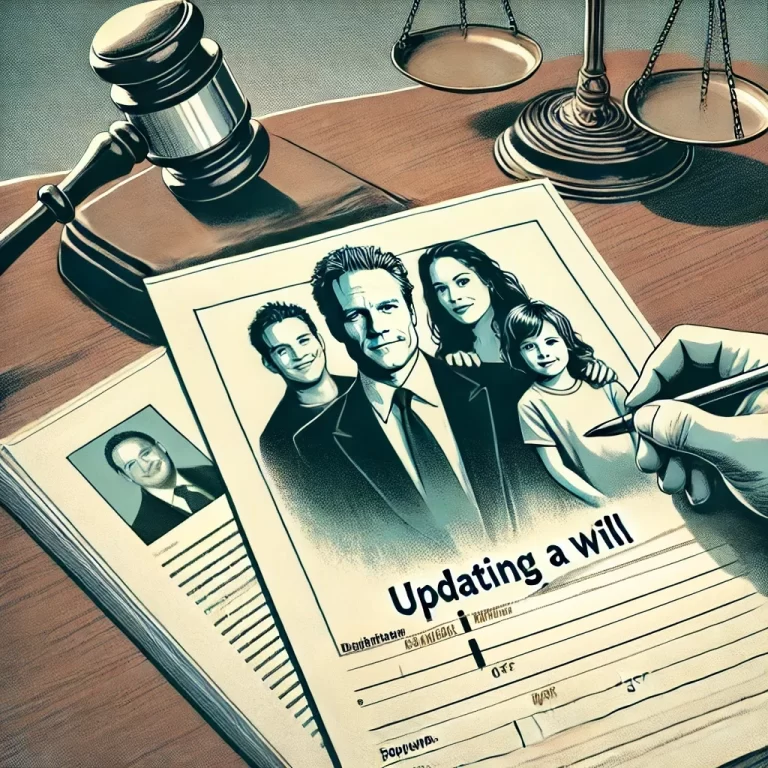Protecting Your Important Documents During a Hurricane in Florida
As hurricane season bears down on Florida, preparing your home and ensuring your safety are top priorities. However, one crucial area often overlooked is the protection of your important documents, especially estate planning documents. These papers are essential to your future and the well-being of your loved ones, making their preservation vital. Here’s how you can protect these critical documents before a hurricane strikes.
1. Understand Which Documents Are Essential
Start by identifying your most important documents. These may include:
- Wills and trusts
- Power of attorney documents
- Health care directives
- Birth certificates
- Marriage licenses
- Social Security cards
- Property deeds and titles
- Insurance policies
- Financial account information
- Passports
These are just a few examples, but all legal and financial documents should be part of your hurricane preparedness plan.
2. Create Digital Backups
Digitizing your documents is a proactive measure to ensure you have access to them even if physical copies are lost or damaged. Use secure scanning apps or services to create digital copies, then store them in encrypted cloud storage or a password-protected external hard drive.
How to Digitize Safely:
- Scan your documents with a high-quality scanner.
- Encrypt the files before saving them to cloud storage.
- Choose reputable cloud providers that offer strong security features.
- Use two-factor authentication to add an extra layer of security to your digital backups.
3. Use a Waterproof and Fireproof Safe
Storing physical documents in a waterproof and fireproof safe can help protect them from water damage and fire. Look for a safe that is:
- UL-rated for fire resistance (at least 1 hour of fire protection is ideal).
- Water-resistant, tested to withstand submersion.
- Large enough to fit all your vital documents and valuables.
Place the safe on an elevated, sturdy surface to further reduce the risk of water damage during flooding.
4. Consider Storing Copies with Your Lawyer
A trusted lawyer is an invaluable resource when it comes to protecting your estate planning documents. Your lawyer can securely store original or certified copies of your:
- Will
- Power of attorney
- Trust documents
- Health care directives
Benefits of Storing with Your Lawyer:
- Secure Storage: Many law firms use fireproof, waterproof safes or secure digital vaults to store documents.
- Immediate Access: If you need to access or update documents after a storm, your lawyer can provide copies quickly.
- Additional Protection: Even if your home suffers damage, your legal documents will remain safe and accessible.
5. Utilize Safety Deposit Boxes
Another option is to store your most important documents in a bank safety deposit box. Banks often have robust disaster preparedness plans, making them a reliable option for safeguarding critical papers. Keep in mind that accessibility may be limited immediately after a hurricane, so this should be part of a broader storage strategy.
6. Prepare a “Grab-and-Go” Binder
Create a binder or a portable document holder that contains copies of your essential documents. This should be part of your evacuation kit. Include:
- Copies of all vital documents (wills, power of attorney, health care directives, etc.)
- A list of emergency contacts, including your lawyer
- Important medical information
- Emergency cash and a list of financial accounts
Use a waterproof, zippered bag or case to hold the binder, and keep it in an easily accessible location so that it can be grabbed quickly if you need to evacuate.
7. Stay Informed and Ready
Once your documents are secured, ensure you’re aware of evacuation routes, shelters, and emergency contacts. Regularly review and update your documents to ensure they are current, reflecting any recent life changes like marriage, divorce, births, or deaths.
Final Thoughts
In Florida, hurricane preparation goes beyond boarding up windows and stocking up on supplies—it’s about ensuring the safety of everything that matters, including your important documents. By using digital backups, investing in a fireproof and waterproof safe, and storing documents with your lawyer, you’ll have peace of mind knowing that your estate planning documents and other critical papers are secure.
If you have any questions about storing your estate planning documents or would like to review your current plans, contact our office. We’re here to help you protect what matters most.
Contact Us For More Information

Or Call 941-365-2253 for a Free Consultation
NOTE: The use of the Internet or this form for communication with the firm does not establish an attorney-client relationship. Confidential or time-sensitive information should not be sent through this form.







